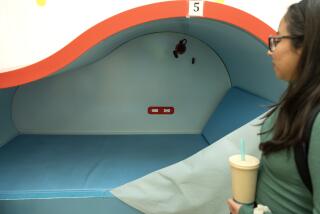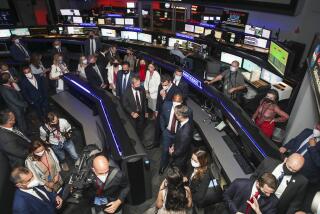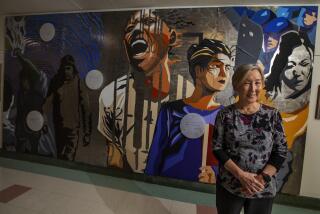$100-million gift to UCLA shows growing role of private donors in public universities
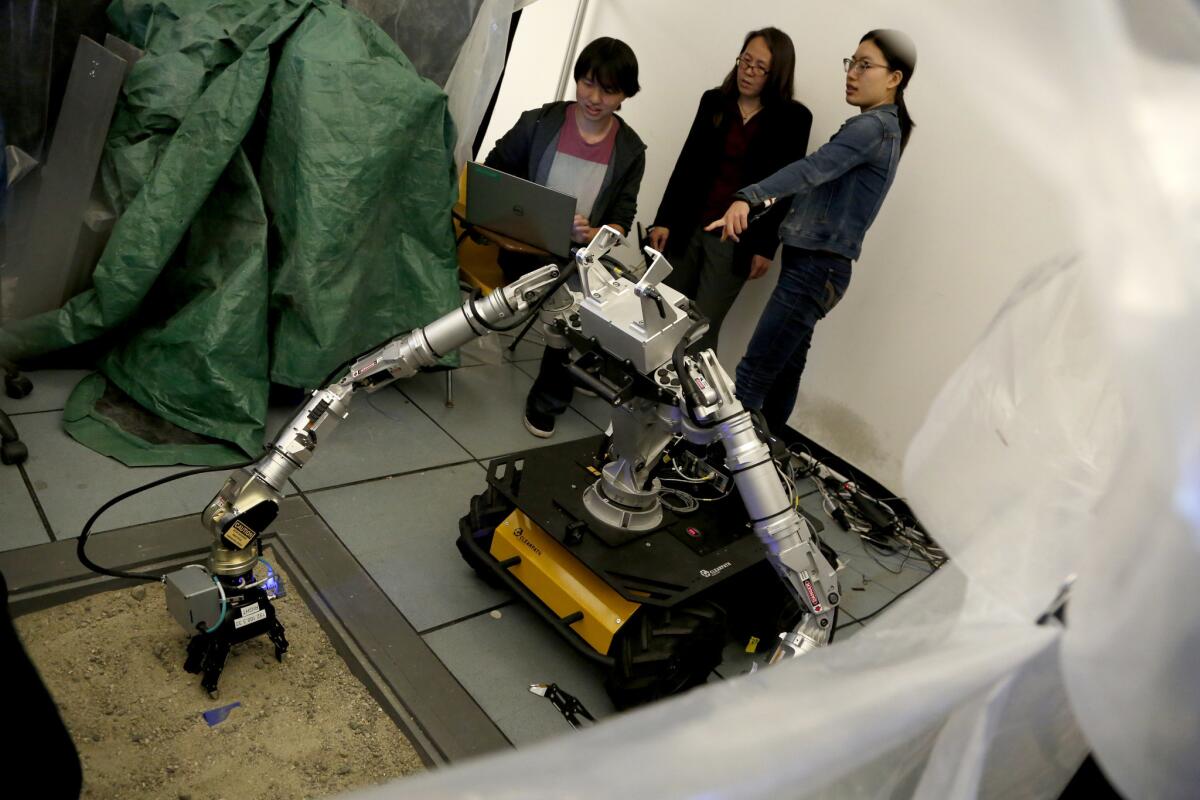
Deep in the engineering labs at UCLA, students and faculty are hard at work on the future.
In one lab, Jacob Rosen, a professor of medical robotics, shows off robots that can stitch up wounds and help rehabilitate stroke victims. Other faculty and students are developing a carbon-neutral concrete to mitigate the effects of climate change, a new type of insulin to protect diabetics from potentially perilous hypoglycemia, and portable treatment systems to purify contaminated groundwater for drinking.
Drawn by such cutting-edge work, about 26,000 students apply to UCLA Samueli School of Engineering each year — but the school can accommodate only 775 of them. That is about to change.
On Tuesday, UCLA announced a $100-million gift to expand the engineering school from Henry Samueli, who cofounded semiconductor and software firm Broadcom Inc., and his wife, Susan. It is the school’s largest ever private donation. The gift will allow the engineering school to do what diminished state funding no longer does: significantly grow to meet the demands for training in some of the world’s hottest career fields.
“We have this huge pool of talent and we don’t have enough seats,” said Jayathi Murthy, dean of the engineering school.
The donation will help the school add about 1,000 undergraduate and graduate students over the next decade to reach a total of about 7,000. It also will increase tenured and tenure-track faculty by nearly 100 to about 250, and provide competitive start-up packages, endowed chairs, scholarships, fellowships, labs and equipment, Murthy said.
None of that would be possible without private donations, she said.
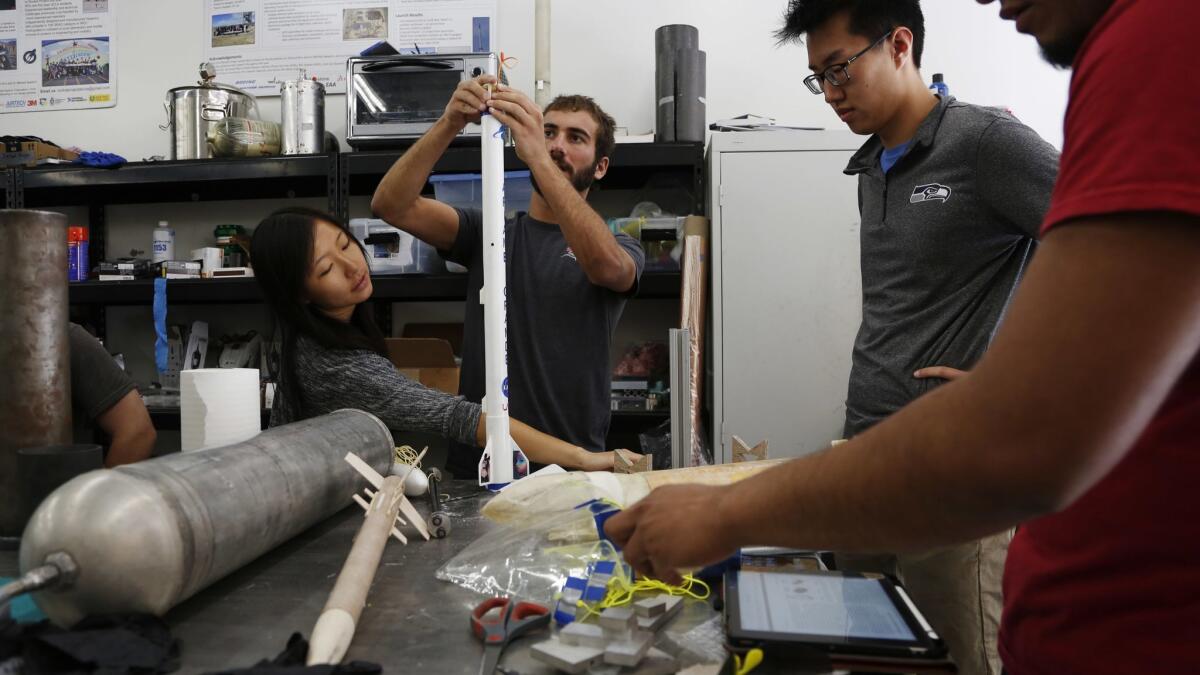
“State support is critical for a state university, and nothing replaces that,” she said. “But state support has been decreasing for many years — decades really — and we are dependent more and more on philanthropy to provide the undergirding we need … to build the labs and buy the computers and equipment.”
The new gift brings the Samuelis’ total donations to UCLA to $188 million, which includes a previous contribution that prompted campus officials to name the engineering school in their honor. They are among the top donors to the Westwood campus.
“The demand for engineering graduates has continued to grow unabated, so it is exciting to see UCLA’s significant commitment to increase the number of students and faculty, and expand research and entrepreneurship within the school,” Henry Samueli said in a statement. “Such a commitment will ensure that UCLA Samueli remains among the elite engineering schools in the world.”
The benefits of UCLA’s engineering research and education were evident during a recent campus visit. In one lab, Veronica Santos, an associate professor of mechanical and aerospace engineering, worked with doctoral students Lionel Zhang and Shengxin Jia to program a robot they equipped with touch sensors to better identify objects in a sandbox. The research, funded by the U.S. Office of Naval Research, will help protect the military by using machines instead of people to find explosives.
In the campus innovation lab, which offers students a 9,000-square-foot workspace and free use of 3-D printers, laser cutters and engineering tools, projects ranged from cube-lifting robots to a cardboard cutout of Royce Hall used for a Halloween costume. Vlad Miftakhov, a senior in electrical engineering, fiddled with his autonomous trash-collecting robot to clean sidewalks and lawns. He found his passion as a boy.
“I just love building things,” said Miftakhov, who has been offered an $80,000-a-year job from a firm that makes charging equipment for electric vehicles.
In another room across the way, students worked on various stages of rockets — including one designed to blast an egg into the sky and return it intact.
Anneliese Peterson, a second-year student in aerospace engineering, said she’s been fascinated by how things worked from childhood. She recalls trips to Disneyland at age 6, wondering why the Peter Pan ride couldn’t actually fly.
The brainy student — who scored in the top 1% of standardized test-takers like more than half of UCLA’s engineering students — plans to intern this summer at a Bay Area start-up that makes rockets to launch small satellites. The venture could bring internet access to remote communities across the planet, democratizing education.
“Engineering is the cutting edge,” she said.
Murthy said the school plans to use the $100-million gift to advance research to create new cells and organs with 3-D printers, better predict and mitigate the risk of natural disasters, build robots to perform surgery, develop “exoskeletons” to help stroke victims move again and strengthen cybersecurity. The state will depend on such engineering prowess, from Hollywood’s use of special effects to agriculture’s crop-monitoring drones.
“Undergirding everything that happens in California is engineering and technology,” Murthy said. “We own everything, basically,” she added with a laugh.
Some question whether the growing reliance on philanthropy will inappropriately skew public university research priorities toward private interests. A $200-million donation by the Samuelis to UC Irvine in 2017 raised some concerns that it would be used to promote unproven alternative medicine. But the Samuelis did not specify how their new gift should be used other than to expand the engineering school, Murthy said.
UCLA Chancellor Gene Block said he does not believe the state will ever resume past levels of funding, which once covered nearly all costs of attendance. So the campus has aggressively courted private donors, raising $4.7 billion in its current fundraising campaign launched in 2012 to commemorate its centennial anniversary this year.
The effort, which has drawn more than 527,000 donations from $1 to more than $100 million, is on track to hit $5 billion and marks one of the nation’s most successful fundraising campaigns by a public university. But Block, in a recent interview, fretted that the gap in endowments and fundraising between public and private universities is widening.
“It’s a concern in the long term,” he said. “We have to bring in ways to bring in more revenue.”
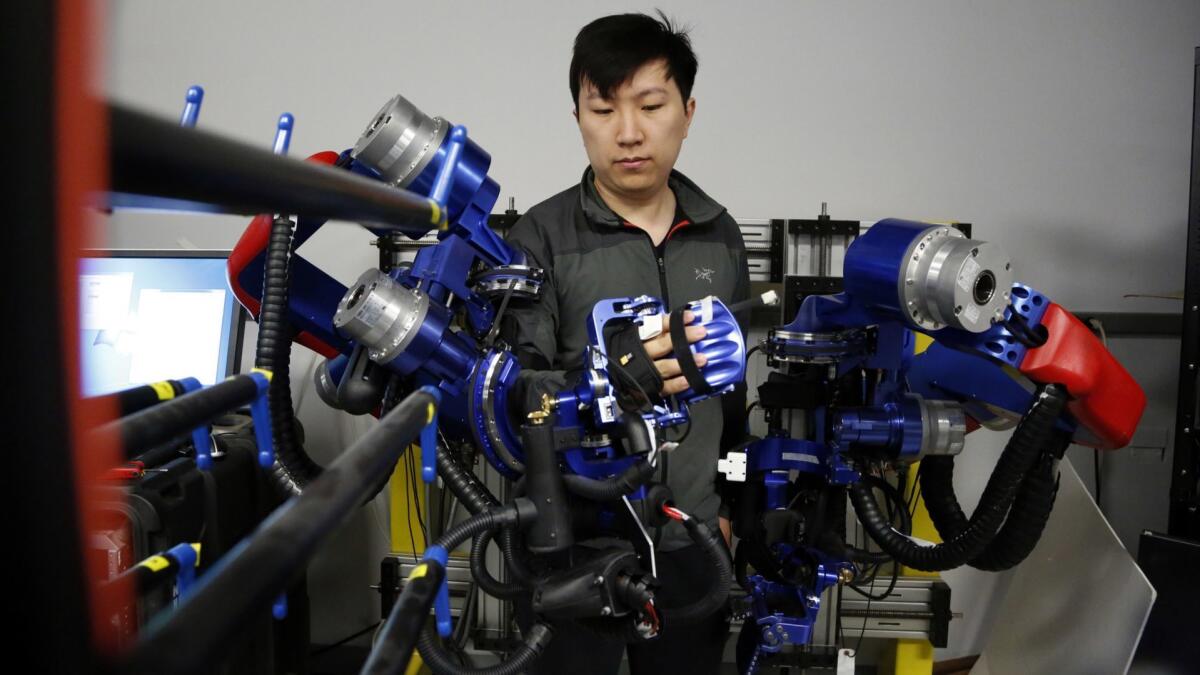
Twitter: @TeresaWatanabe
More to Read
Start your day right
Sign up for Essential California for news, features and recommendations from the L.A. Times and beyond in your inbox six days a week.
You may occasionally receive promotional content from the Los Angeles Times.
